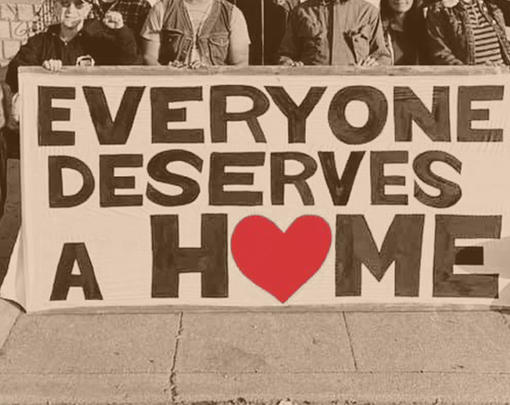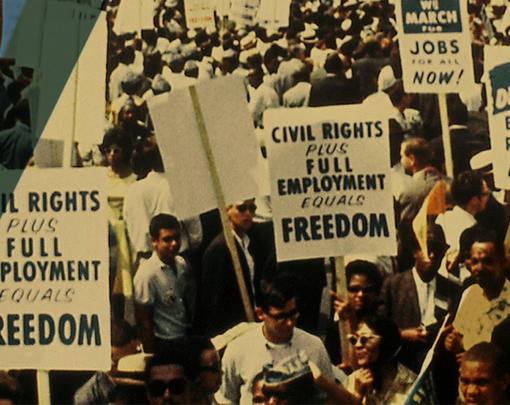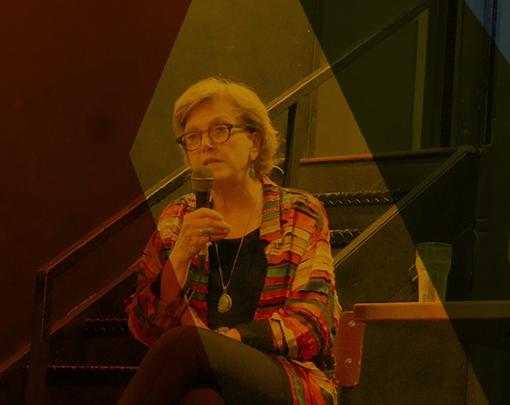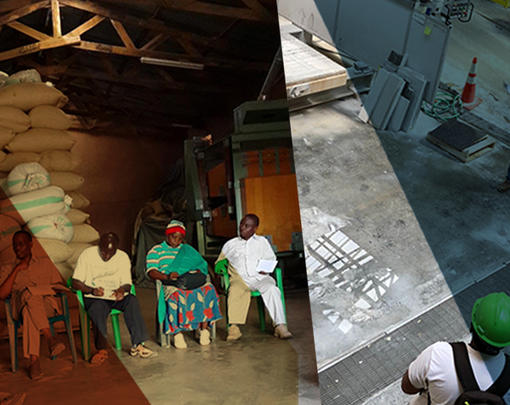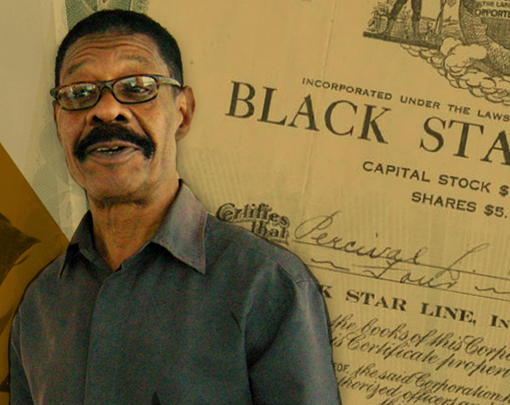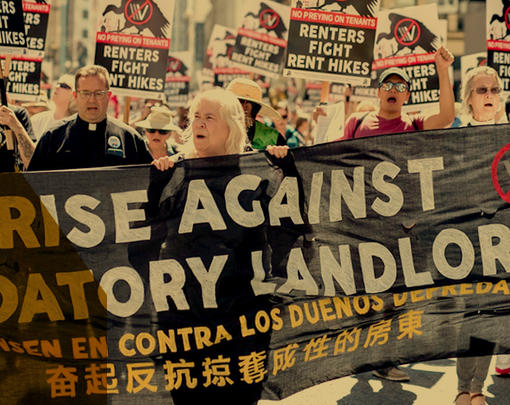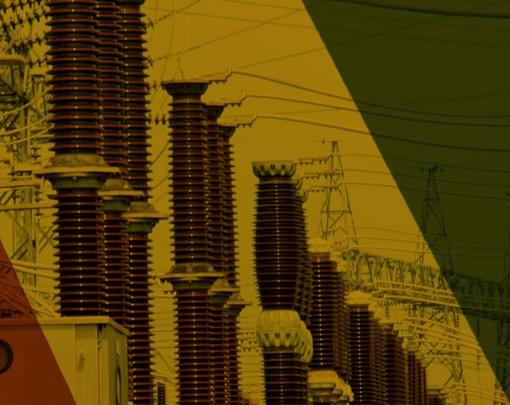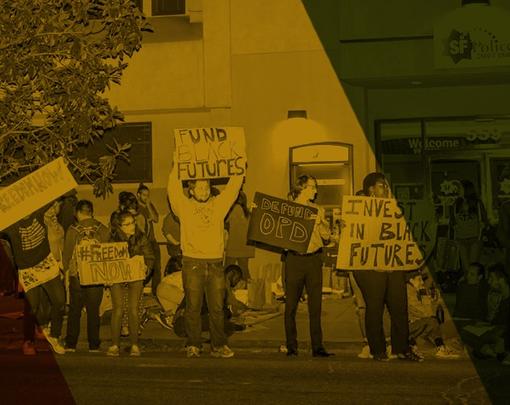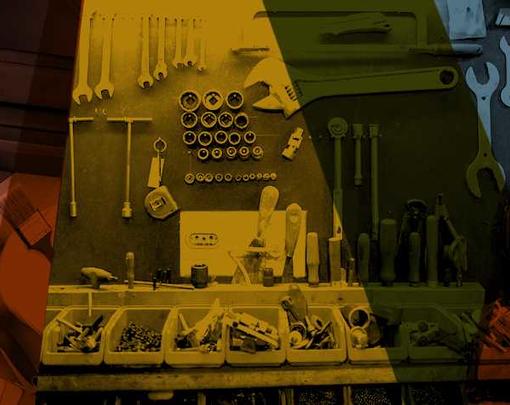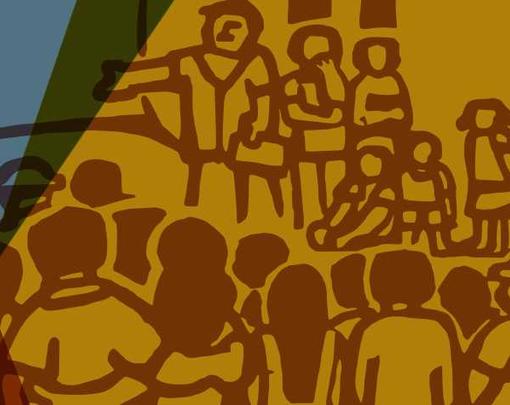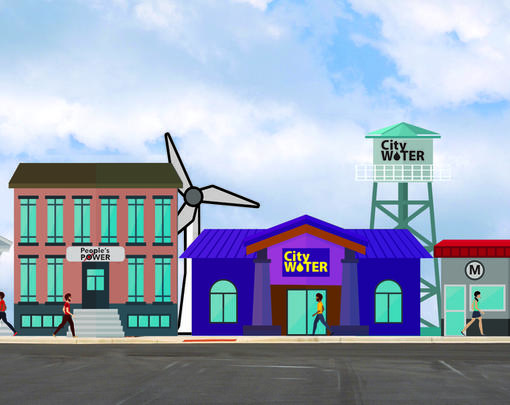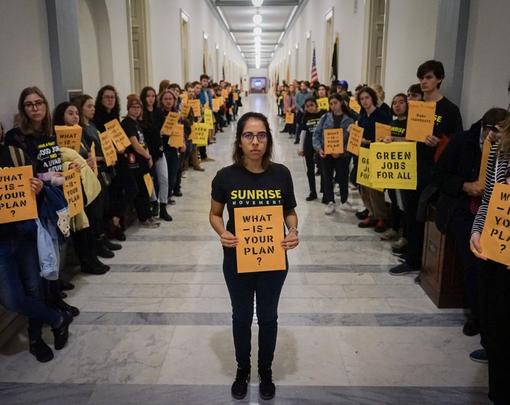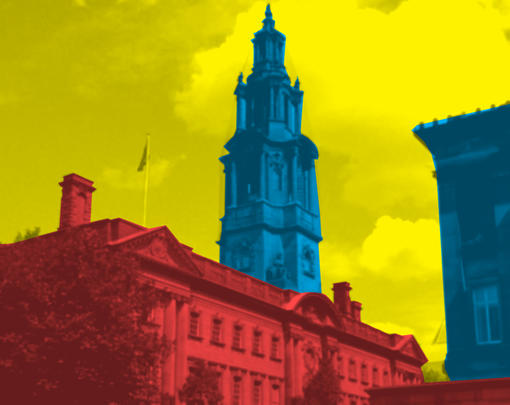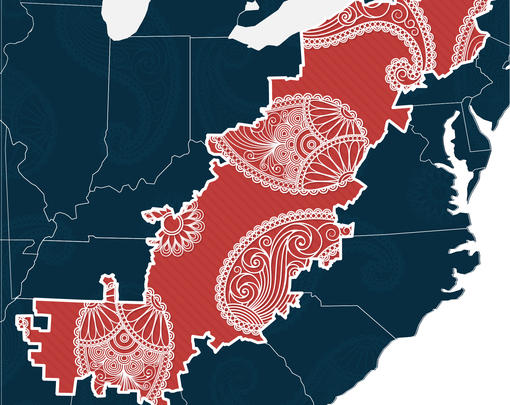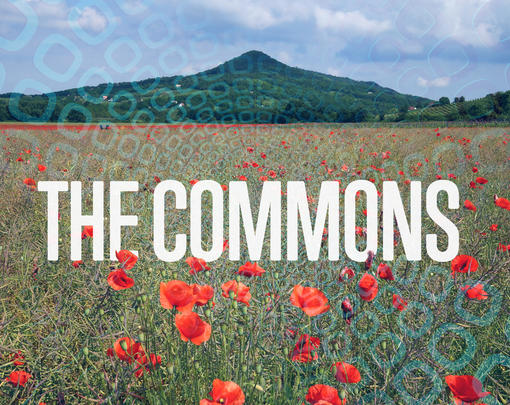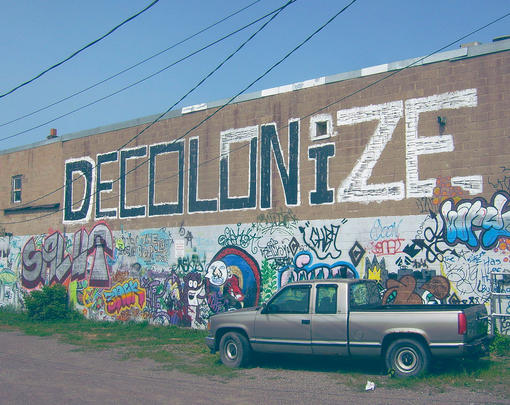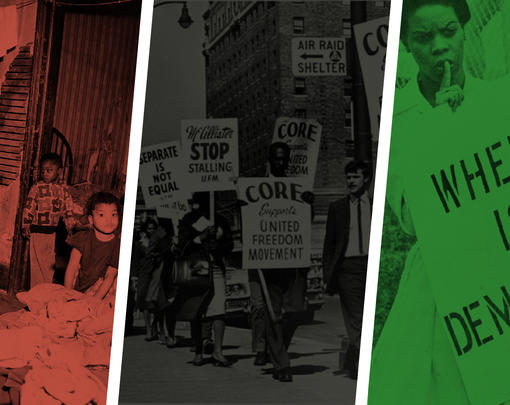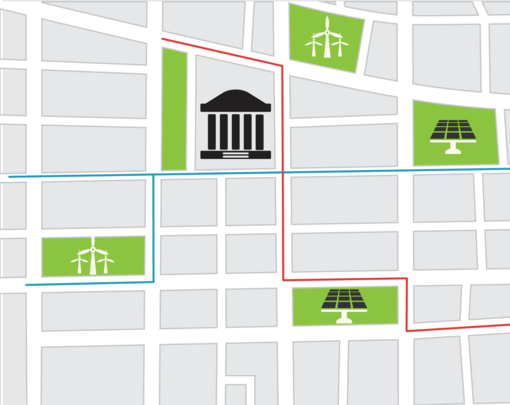This week Stacy Mitchell, Co-Director of the Institute for Local Self-Reliance (ILSR) and Director of ILSR’s Community-Scaled Economy initiative, joins Adam Simpson and special co-host Katie Parker to discuss locally-minded economics and what effects they might have on our communities.
Subscribe to the Next System Podcast via iTunes, Soundcloud, Google Play, Stitcher Radio, or RSS.
Adam Simpson: Welcome to The Next System podcast. I’m your host, Adam Simpson, joined today by a very special co-host, Katie Parker. Katie is a senior research associate here at The Democracy Collaborative working on engaging anchor institutions and advancing more inclusive economic development. Katie, thanks for joining me.
Katie Parker: Thanks for having me, Adam. I’m very excited for today’s conversation. Our guest today is Stacy Mitchell, the co-director of the Institute for Local Self-Reliance and Director of its Community-Scaled Economy Initiative. Stacy is also the author of Big Box Swindle: The True Cost of Mega Retailers and the Fight for America’s Independent Businesses, and serves on the board of the New Economy Coalition. Stacey, welcome to The Next System podcast.
Stacy Mitchell: It’s so nice to be with you.
Katie Parker: Before we begin, we wanted to ask you a bit about your personal background. What led you to working in the local economy space and the work you’re doing today?
Stacy Mitchell: That’s a great question. I guess I’ve always been interested in democracy and how to create a more equitable and healthier, happier society, if you will. As a kid, I was really interested in environmental issues. When I was in college, I studied US labor history and the history of abolition and the civil rights movement. I was interested in trying to understand how it is that change happens. And when I left college, I worked a little bit in the labor movement, and also a little bit at the Minnesota Historical Society.
I sort of was on this fence between doing something that was more academic and intellectual in terms of studying these issues, and something that was more of an activism approach. Then there was a job opening at the Institute for Local Self-Reliance, which was a perfect combination of those two things because we get to do deep research and study these issues. At the same time, we do it in the context of advocacy and working closely with grassroots organizations.
Adam Simpson: As we mentioned, you had the Community-Scaled Economy Initiative at the Institute for Local Self-Reliance. Can you tell us a little bit about this initiative?
Stacy Mitchell: Our feeling is that communities are healthier, our economy is healthier, our democracy is healthier if economic power is widely dispersed. Over the last few decades, we’ve seen just dramatic consolidation in the economy, just a couple of companies now dominate most industries—just a huge concentration of power.
Part of what we do at the Community-Scaled Economy Initiative is we challenge concentrated economic powers. We fight the power of Amazon, we look at antitrust and other ways that we can use policy to intervene and break up those concentrations of power. Then we also do a lot of bottom-up work, which is how can communities and cities strengthen locally-owned businesses, grow local economic systems. In that context, we write a lot about why that matters, like what is it about dispersing ownership and having more small-scale enterprises that actually is not only better for the economy and our economic well being, but it’s also better for us as citizens and is better for the health of our communities and democracy.
Katie Parker: Can you dig in a little bit more into that and talk about the consequences of that economic consolidation and our current economy that tends to be dominated by large corporations?
Stacy Mitchell: One of the consequences of it is that big business is really hobbling economic opportunity. One of the things that new research is showing, for example, is that as there are fewer and fewer companies in an industry, there’s less competition for labor. And so, when workers have fewer job opportunities, big employers are able to hold down wages. Some of the recent economic scholarship suggests that a major reason that wages have been so stagnant for the last 20 years or so is because of consolidation.
Another thing that has happened is that as these big companies gain power, they’re able in their markets to elbow aside smaller businesses and to keep new businesses from being able to compete and enter markets. They use their power in a variety of different ways to actually undermine and pull the rug out from under small businesses, things that are not actually fair or about normal competition. As a result, we’ve seen one of the important pathways to getting into the middle class has really been cut off. We’ve had this just huge collapse in a number of small independent businesses across many sectors of the economy, and we’re also seeing this real steep drop in the rate of new business formation.
We think we’re this country of entrepreneurs. But, in fact, we’re creating new businesses at about one-third the rate that we were in the 1980s; it’s really quite dramatic. So there are all these effects on us economically. Part of the reason I think that we’ve seen growing inequality, and so many people have seen real loss in terms of their income and their standard of living, is corporate concentration. We have a few people at the top that are controlling more and more of the wealth.
The other set of issues really has to do with the fact that these companies effectively are governing our lives. We no longer really live in a democracy if the fate of your community is in the hands of some distant boardroom and whether they decide to have a merger that then closes the plants and operations in your community. On the loss of small local businesses and the economic agency that comes with being a place that has at least some measure of control over its own economy and its own future. in the most extreme versions of this, we of course see the way in which our federal government has largely been captured by corporate interests. So this to me, this issue of corporate power, is really at the center of democracy, whether we’re going to be able to wrest control of our country back.
Adam Simpson: Imagining the kind of system that is much more localized and where the scale of businesses are more locally oriented, what do you think the advantages of that system versus our current system will be? What would be the positive effects?
Stacy Mitchell: At the beginning of answering that question, I certainly believe that we need a mix of businesses of different sizes. There are certain kinds of industries and operations that are inevitably going to be done at a larger scale. So I think the question from a policy standpoint is how do we think about that? And how do we have the right kinds of public interest policies apply in sectors where we know we’re going to have larger-scale businesses? Then how do we make sure that we have lots of local businesses and sectors where it makes more sense to be doing those kinds of things at a local and in a small-scale kind of way?
Some of the advantages of having locally owned businesses, one is that a lot of the economic value of those businesses stays in the local community. We know from research that independent businesses tend to buy a lot of goods and services locally. If they need their printing done, they’re going to a local print shop. If they need a website done, they are hiring a local web developer. They’re advertising in the local paper. They’re banking at a local bank. And so, dollars that go into those local businesses are re-spent in the local community and help to support a variety of different kinds of local jobs and economic opportunities.
That web of local enterprises and the interconnections between them creates a very resilient local economy. It’s less prone to shocks from big outside forces, national depressions or recessions and other kinds of global shocks. The more that you have actually going on locally, the more responsive businesses are to local conditions and the less exposed you are to those kinds of outside forces.
The other thing I would say is that by having more local businesses, you’re embedding economic activity in local, face-to-face relationships. One of the things that we know, and there’s a lot of sociological research that has proven this as well, is that local ownership complicates business decision-making in socially useful ways. To give you a sense of what I mean by that, you can imagine a community where there’s going to be a vote on whether or not to cut the property tax rate. If you’re Walmart in that community, you absolutely want the property tax rate to be cut. It benefits your bottom line, you have no other position on the issue. If you’re a local business, yeah, it’s going to help your business in terms of lowering the tax rate, but it’s also going to cut revenue to the schools that your kids go to. So now you have a more complicated approach to that. You are a member of the community and therefore, the decisions that your business makes also affect you. And that kind of shift in framework is really important.
I want to be clear to say that none of this obviates the need for laws and regulations. I think we as citizens are the ones who should be setting rules for businesses of all sizes, period, right? That’s what our job is. But I think we have a less uphill fight to get socially useful outcomes out of business decision-making if those businesses are part of the community and their decision-making really is embedded in a broader set of values than simply returns to shareholders and what Wall Street wants.
Katie Parker: There’s been a lot of research around the magnitude and scale of the racial wealth gap. Do you have any thoughts on how community-centered economic development like you’ve been talking about can address systemic inequality?
Stacy Mitchell: That’s a great question. As we’ve seen large companies extract wealth from local communities, we’ve seen this sort of increasing disparities of all kinds, and that has disproportionately affected communities of color. In the financial crisis, for example, we saw a real collapse in banks that are small local banks that are both owned by people of color, as well as those that are serving communities of color. And so, all of the implications of the financial crisis and the consolidation of banking has fallen much more severely on communities of color. Likewise, as we have seen consolidation and the failures of antitrust enforcement really to keep markets fair for small businesses, we’ve seen in a lot of places that the number of black-owned businesses has really decreased in recent decades. We’ve seen a lot of communities lose those kinds of economic institutions and those pathways to the middle class.
All of this has had a really disproportionate effect on communities of color. Likewise, as we think about how could a community-based approach to structuring our economy better serve us, it’s really critical that we think about that through the lens of racial equity and closing the wealth gap. In our own work at ILSR, as we think about economic development programs, lots of cities spend a lot of money every year on economic development, quote, unquote. I know a lot of that is going to subsidize some big company that’s going to come in and may or may not actually generate any real benefits for the community. But as we think about how to shift that economic development approach in another direction, we not only need to have the values of small scale, local and community-rooted but we also need to have a racial justice lens and a gender justice lens as we look at how to how to build new kinds of businesses; thinking about how do we create economic development programs that not only better support local enterprises, but that are specifically structured to address the needs of entrepreneurs of color.
Adam Simpson: Let’s talk about banking and finance. The Next System Project recently released a report on preparing a policy for putting banks under public ownership rather than bailouts the next time there’s a financial crisis. You’ve talked a bit about why you don’t see nationalization as a solution. So I wanted to ask if you could speak a bit as to why you see that and ways we might push back against the kind of too-big-to-fail large banks and financial institutions.
Stacy Mitchell: As a general point, I would say that I think sometimes there’s a tendency to focus exclusively on ownership as the problem, the idea that these are corporate owned or are publicly traded banks or corporations. At ILSR, we would argue that scale is also the issue. That it’s not just a matter of publicly traded companies versus publicly owned companies. It’s also the fact that the scale of these entities is completely out of touch with the scale of communities and the scale of the needs of local economies.
We’re big supporters of public banks in the context of say cities and states. We’ve done a lot of analysis of the Bank of North Dakota. I think it’s a fantastic model. But when you look at North Dakota, what’s interesting is a part of the reason that it works is that the Bank of North Dakota is sort of like a wholesale bank, you could almost say. It’s providing a lot of the kinds of back banking services that in turn support the needs of locally owned privately held banks, as well as credit unions in the state.
One of the interesting facts about North Dakota is they have more locally owned banks and credit unions per capita than the rest of the country by a large margin. Over 80 percent of the deposits in North Dakota are actually held by local banks and credit unions. And that compares to only about a quarter of deposits nationally. I mean, it’s really a dramatic difference. So the Bank of North Dakota has worked in part because it’s sort of a socialist solution, you might say, to creating a more productive market-based set of banks. I mean, it’s the combination of those two things that is actually quite interesting.
Part of the reason that I am skeptical about the idea of nationalizing the banks is that it suggests that we’re going to now have public banks that are at the scale of the nation. And I just think that doesn’t really work. I mean, it’s possible that you could have a national bank that is very narrowly focused on certain kinds of lending and very particular needs. But for the most part, I think what we need from our banking system is to actually be responsive to the needs of local economies and to communities to be able to make smart borrowing decisions based on particular local conditions and needs.
Community banks and credit unions have shown a really exquisite ability to be able to do that, despite the fact that community banks hold only about 20 percent of the nation’s banking assets. They actually supply almost 60 percent of all the small business lending in this country. Part of the reason that they’re able to do that is that they have this trove of soft information; because they are local they actually know a lot about borrowers. They know about local market conditions. So they’re able to pick out which businesses are really actually likely to succeed because they have all this soft information that isn’t going to show up in a standard credit application.
The reason big banks don’t do a lot of small business lending is because they’re actually really bad at it. They make poor decisions and they have a high default rate because they don’t have that local information. So, my concern is that a national bank, even if it’s publicly held, isn’t going to be any better at being able to be responsive to the needs of the local economy.
Secondarily, there is this idea that markets matter. I think markets do a great job at certain things. There needs to be a balance in terms of how those markets are structured by public interest legislation and in some cases, by public ownership of certain kinds of infrastructure. But I don’t see a world in which we don’t have markets, or at least I don’t want to live in that world.
Katie Parker: I want to dig in more to this question of scale. One of the critiques that we hear of focusing economic development on the local small business scale is that historically, small business hasn’t always been the best actor in terms of some progressive causes, from minimum wage increases to unionization campaigns. In the example of municipally owned enterprise, we don’t always see those firms going towards things like renewables or having greater participation. Can you talk a little bit about what mechanisms you see to kind of ensure that local enterprises are achieving those goals?
Stacy Mitchell: I think I’ll take and separate that into two different pieces. The first is how is it that the presence of small businesses benefits workers. There’s a lot of evidence and a number of new studies that have been published recently that look at this question. What they’re finding is that consolidation is really bad for workers, that not only are there fewer and fewer companies competing for workers, and that lack of competition is holding down wages, making it harder for people to sell their labor and get a fair price for it. But there’s also a lack of leverage. It used to be that you could go out and start your own business, that there were these multiple pathways that someone might be able to get into the middle class. You could either go get a good union job, you could start a business and move into the middle class. As those pathways are cut off, workers have less leverage, fewer other opportunities and therefore end up getting lower wages.
One of the ways that this actually shows up is in studies that have looked at different countries and have found that countries that have maintained a larger share of small and midsize businesses have actually seen far less inequality than countries like the United States where we have wiped out small businesses. I think part of the reason that progressives kind of miss this aspect of what’s going on is that we have come forward with only part of our history in our mind. We know that during the Reagan revolution of the 1980s, when this whole Chicago School way of thinking about the economy and libertarian ideology came along, we know that part of what happened then is that corporation seized control of governments and they undermined the rights of workers to form unions. Workers have been losing ground and unions have been losing ground ever since.
Well, the other part of that story is that they allowed corporations to come in and revolutionize our antitrust laws and to also change a whole host of other policies. In the ’90s, we changed our banking laws, we changed our media ownership laws, and all of those changes that corporations succeeded in getting through our government were aimed at undermining their smaller and midsized competitors. So corporations had this idea of, “How do we amass power? Well, we undermine the power of our workers. And we undermine the power of our competitors. We knock them out of the market. And we’ll use government to do both of those things.” In doing that, what they did was they eliminated economic opportunity for the rest of us and created a system that’s very good at amassing power at the top.
So part of the answer to the politics around the well-being of workers and small businesses has to do with the role of small businesses and structuring the economy in ways that expand opportunity and help lift up wages by creating competition, right? There’s a structural reason that I think progressives should be concerned about the demise of small businesses.
The other thing I would say in response to your question is that the politics of small business largely reflects the politics of people, right? Small businesses are about a third Democrat, a third Republican, a third independent. It kind of mirrors the population. Certainly, there are small businesses that have opposed increases in the minimum wage. We see examples of that. But there’s also a lot of examples of the opposite, where small businesses have really fought for increases in the minimum wage and have said that this helps them compete more fairly because by forcing their competitors like Walmart to raise wages in line with what they’re paying their own employees, it creates a more fair playing system. It creates a more fair playing field.
The other thing I would just say, too, with regard to the politics, is that while it’s mixed on the small business side, on the big corporate side, it is almost universally against raising the minimum wage. The reason that matters is that the corporations—because they’re so big and have such financial resources—have an outsized role in setting the policy of government. Their ability to give campaign contributions and to lobby, they have played a decisive role in and stopping policies that would lift up the well being of workers. And that’s really critical. It’s a core and primary reason that we really need to recover our anti-monopoly tradition. We used to understand in this country that the problem with corporate power wasn’t just that it hurt us economically, it also was a problem because of the political power that these corporations would gain.
Adam Simpson: Absolutely. And you focus your work a bit on the effects of this type of consolidation in rural America, which I think is something that often gets left out of these kinds of conversations about economic development. Say a bit more about what you’re seeing there in rural America and how consolidation is affecting people there.
Stacy Mitchell: One of the consequences of corporate consolidation that has become really painfully apparent in recent years is that it has sorted the country into this starkly unequal geography. Lots of places are being left behind. Rural America, small towns, but also second-tier cities. cities in the Midwest and other left-behind regions of the country are also being left behind. More and more what we’re seeing is that new jobs and new businesses are happening in only a handful of primarily coastal cities. Meanwhile, much of the rest of the country is not seeing much in the way of new job growth or new business creation—and there’s a lot of despair and hopelessness out there. It’s part of what’s undermining our politics and our ability to come together and solve some of these problems is that despair.
We see this in our work in a lot of different places. in broadband, for example, there are so many rural communities that have no access to high-speed broadband or in other cases, they have only one monopoly provider. One of the things that we used to see in our antitrust policy prior to the 1980s, when antitrust enforcers looked at a potential merger, one of the things they used to consider was how will that affect the communities where those merged companies have locations. What we see a lot now is that there’s a merger and a city or town that used to have a headquarters or a factory or plant loses that operation in the context of the merger. It used to be that we considered the importance of having economic opportunity widely dispersed geographically when we looked at mergers. We stopped doing that. As a result, you’ve got all these places that are losing their headquarters to mergers, that are losing factories that are closing to mergers, that are losing small businesses that are not seeing any new creation of jobs and businesses. And they really feel increasingly powerless to control their own future. That sense of powerlessness is really poisonous to a democracy.
Katie Parker: You mentioned some things like municipal broadband. I was wondering if you could speak more about the role of public ownership in addressing corporate consolidation?
Stacy Mitchell: We have seen hundreds of communities across the country create publicly owned broadband networks to provide service where the dominant providers like Time Warner and Charter are bypassing communities, or in other cases, to add meaningful competition where there isn’t. Many people only have the choice of one broadband provider. So public networks have been growing all across the country and they’re often providing much faster and better service to people at much lower costs. And because they’re publicly owned, they’re guided by a commitment to the community and by what the community needs and wants in a way that Time Warner and Charter are not.
We are also seeing rural co-ops, particularly rural electric co-ops, also starting broadband networks, super successful in many cases, lower cost for better service. So there are other kinds of structures beyond public ownership that can work well, too. But I think in both cases, what you see is because of either the public ownership or the cooperative ownership, you have infrastructure that is actually responsive to local needs, and where what’s driving the decision-making is how do we do this well on behalf of our community, as opposed to what drives the decision-making of Time Warner or Charter, which is how do we enhance our bottom line and how do we provide the least and extract the most from the communities that we’re supposedly serving.
One of the things that’s really interesting about our community broadband program is that a lot of the communities that we’ve worked with that have gone on to create publicly owned networks are in red and rural places. And I find it fascinating given the kind of anti-government rhetoric of the right that these are conservative communities in many cases that are both demonstrating and learning in the process that public ownership is actually a viable solution and often a better solution in some cases. So what is exciting to me about the growth of community broadband networks is not only are they solving this real problem and benefiting communities in and of themselves, but they’re also demonstrating the fact that public ownership is not inevitably like an ineffective or inefficient approach to things. It’s actually quite effective and I’m hoping that what we’re learning in broadband and seeing in broadband will begin to translate into other sectors.
Adam Simpson: Do you think that’s because of the scale of these types of publicly owned projects there and because they’re more democratic and participatory in nature? There’s a self-governance ideology associated with why you wouldn’t associate this with the boogie man of quote-unquote “big government” or what have you in these types of red-state areas.
Stacy Mitchell: I think these communities are doing this because it’s practical. Imagine not having broadband and what that does to your ability to access information as a citizen and to just participate in today’s world and also what it does to economic development and the ability of businesses to succeed in your community. It’s really crippling not to have broadband or to have such limited and poor competition that the quality of the service isn’t great and it’s really expensive. So, I think what’s happening is these communities are turning to public ownership because it’s a practical solution that works really well. then along the way, perhaps rediscovering the role of democratic solutions and public ownership as a solution to problems in a way that I think really effectively counters the ideology of the right about the role of the public sector.
Katie Parker: I want to transition to talking about Amazon. There’s been a lot of buzz about Amazon’s growing economic power. I think your work has highlighted a lot of activities that might be flying under the radar in those conversations, but have big ramifications. Like Amazon’s movement into the local government procurement space. You’ve described moves like this as Amazon trying to control the underlying infrastructure of the economy. Can you talk a little bit more about this and what’s at stake here?
Stacy Mitchell: We often talk about Amazon as though it were a retailer, and it’s certainly a company that sells a lot of stuff. They’re now capturing one out of every two dollars that Americans spend online. They sell more books and toys than any other retailer and they’re on their way to selling more consumer electronics and apparel probably by the end of this year than any other retailer online or off. So they sell a tremendous amount of stuff.
But to talk about Amazon as a retailer really misses the true nature of this company. What Amazon’s ambition is, is to really be the underlying infrastructure of the economy. Its ambition is not so much to dominate markets, but to become the market. The way that this works is that even just a few years ago when someone was looking to buy something online, they would typically start at a search engine and they would type in “running shoes” and they would get a bunch of different results. Amazon would be among them, but they might also get, say, their independent local running shoe store, and they would choose among those results and browse around.
Now what has happened—and this is largely because of Amazon’s Prime membership program and also increasingly Alexa, its voice assistant—is that more than half of all people looking to buy something online are bypassing search engines and starting directly at Amazon. What that has meant for the independent running shoe store in your community is that they may have once had a robust e-commerce site, and they were serving local customers both in person and on their site and doing well that way. Now because all the traffic is really bypassing search and just starting on Amazon, their traffic on their own site has dropped dramatically. Now they’re in this really difficult position. They have to make this hard choice: They can either continue to operate their site independently, sort of like hanging out your shingle on a dirt road where no one’s walking by, or they can decide to become a third-party seller on Amazon’s marketplace.
Many people may not realize this, but about half of what is sold on Amazon is actually sold by other companies, third parties that set up shop on Amazon’s marketplace. And now because of this power that Amazon has attained as a gatekeeper, all kinds of other businesses, whether it’s the independent Main Street retailer or big chains or producers of all sizes, small companies as well as all the big manufacturers, they’re increasingly finding that they have no choice but to get on Amazon’s platform. And doing so is an incredibly treacherous path. It’s the pathway that they feel they have to travel in order to get to the market. But what it means is that they’re handing to their biggest competitor their customer relationships, all the data about their transactions and their products. And they’re also handing to Amazon a substantial cut of their revenue right off the top for the privilege of selling on the platform.
We know from a lot of research that Amazon uses that information to compete against those sellers. It learns what products are selling well and then brings those products into its own inventory and knocks those other sellers off the search results and puts itself in first place. So what Amazon has essentially created is this incredibly lucrative machine for consolidating wealth because by controlling the underlying infrastructure that other companies need to get to market, Amazon can decide okay, there’s certain products and services that we want to offer that we think are going to be lucrative for us to do and we will privilege our own products. We will give them better visibility in the search results and better terms to be on that platform and make sure that’s what customers see and buy. And then for the other stuff that we really don’t want to handle, we’ll let other companies do that, but we’ll levy what is essentially a tax on their trade through the fees that we charge them.
So in this sense, Amazon has become a kind of governing force. Markets should be democratically controlled. We should decide what the parameters of markets are. We can think about it in the most simple sense an old village market where okay, we decide as a community that Wednesday is going to be market day and we’re going to have it in the square and everybody’s going to get an equal size space to sell their wares. And these are the terms in which people can operate in the market. That should be publicly decided in a democratic society. What Amazon has created is not a market; it’s a private arena. They want to control the exchange of goods and services and the way that buyers and sellers interact. And they want to set the rules and the terms. And then, that enables them to profit enormously off it and amass an enormous amount of power.
And they’re doing this not only in the commercial sector, as you noted, but they’re increasingly doing it in the public sector. So they are positioning themselves to be the interface between government buyers and the vendors that want to sell to government. And that is, I think, really gone under the radar. And we’ve been doing a lot of reporting on how that’s happening and what the dangers of that are.
Adam Simpson: Some of this kind of echoes a lot of what I’m hearing about criticisms of Facebook and the new media, right? So it’s that people aren’t going to CNN.com to find their news. They go on Facebook and they get their news and Facebook is quickly becoming the place where everyone gets all their news, and including Twitter and whatever. It sounds like it’s a similar issue with Amazon and purchasing. But I’m wondering what then is the pathway for change and bringing back some democracy into this market. Are we talking, in your mind, about kind of an antitrust pathway or regulatory pathway? What do you see as the pathway for change and making this more democratic and more sustainable?
Stacy Mitchell: I think you’re absolutely right that there’s this growing conversation about what’s being talked about as platform power, platform monopolies. And so it’s Google, Facebook and Amazon. And sometimes people include others as well, but those are the big three. And the central issue here is that they’re gatekeepers. They’re the platform that all sorts of other entities, whether its news organizations or retailers and manufacturers, all sorts of other entities have to rely on those platforms to do what they do. They’re intermediaries that control information and control commerce. So how in a democratic society do we approach that kind of concentration of power?
My feeling with regards to Amazon is that we have a lot of antitrust tools that we can use and should use in the context of restructuring Amazon to serve the public interest. What I would like to see is that there be a separation. So Amazon as a platform becomes a separate company from Amazon as a retailer and a manufacturer. And that the platform has to treat all comers equally, has to be a common carrier or maybe a public utility. And this is what we did with railroads. I mean, it’s important to remember our history here. Our antitrust laws were really first created around responding to the power of railroads, this sort of new technology that came along and restructured commerce. And what happened then was you had a few industrialists who got control of the railroads. They often had interests in other businesses and they would use their control of the railroads to privilege their other businesses. They would knock their competitors out and say “Oh, sorry. You can’t ride my rails or you have to pay more money if you want to,” and they would privilege their own goods’ access to markets.
That’s what led to our antitrust laws initially, and we said to railroads you can’t have this cross-interest in other industries and you have to be common carriers. You have to treat all commerce equally. So I think we need to look at Amazon’s platform in that context. And I think in order to have that sort of public interest, common-carrier kind of regulation of the platform, we have to cleave off Amazon as a retailer-manufacturer. That has to be a completely separate company. So we have to break up Amazon.
The other thing that I would really like to see in that context is that we encourage the development of other platforms. So, you think about a business that wants to sell or a consumer that wants to buy something, we increasingly have no choice; the platform is Amazon. And we need to develop other platforms so that businesses now have competition and there’s a level of competition for those businesses to join based on the terms they are offering and that consumers also have options. So I think those are really sort of the core ways that we need to approach Amazon. And I think some of those same principles probably also apply to Google and maybe to Facebook, though the dynamics are a little bit different.
Katie Parker: Is there anything we’ve left out that you want our listeners to know about in regards to the Community-Scaled Economy Initiative or your broader work at ILSR?
Stacy Mitchell: One of the things I think maybe is important for our listeners to know is that we also do a lot of bottom-up local work on city policies. Some of the things that we’ve been doing in the Community-Scaled Economy Initiative, for example, we just published a local action policy toolkit, looking at what cities can do to strengthen local businesses; what they can do to control big companies, such as control and limit the proliferation of chain stores, for example; how they can reorganize their economic development to focus more on local businesses; and what they can do to support more of a local community banking system, including establishing a municipal bank to support that local banking system. So we provide a lot of tools around local policy and chronicle and report on places that are doing really interesting things on that front. So I would encourage people to check out some of those resources as well.
Adam Simpson: I really appreciate this conversation. I really look forward to sharing with our listeners. Thanks again for being on The Next System podcast.
Stacy Mitchell: Thank you so much. It was so nice to be a part of this conversation. And as a fan of the podcast, I was excited to be asked to be on it. So thank you.
Adam Simpson: Well, I appreciate that. For our listeners, we’ll see you next time on The Next System podcast.





